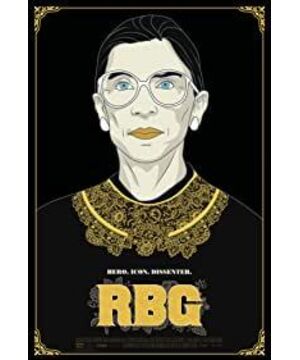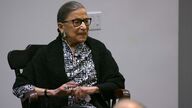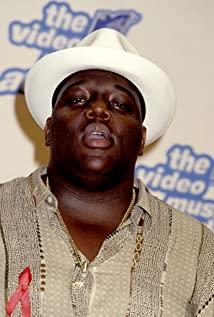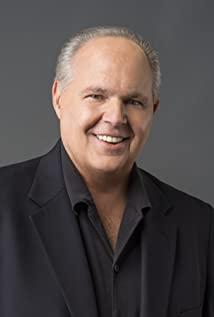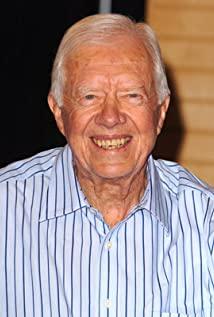In 1970, in the United States, banks required the signature of husbands to issue loans to women; employers could fire female employees on the grounds of pregnancy; women were not allowed to work overtime, assuming they could and would not receive overtime pay; women were not required to work overtime for a simple reason. Fulfill your civic duty to serve as jurors - there is no need for female jurors in the courtroom, even cases that absolutely concern women's rights can be decided by all men...
As a woman, on the surface, life seems to have a lot of smooth roads, but when you try to go in any direction, you will find countless roadblocks in front of you. They come not only from social pressure and prejudice, but even from the law itself. There are at least 178 federal laws and thousands of state laws that address discrimination based on gender. These laws protect traditional gender roles, or "social divisions," said to be "thousands of years old."
It's always been like this, right?
Women didn't wake up in the 1970s, when Abigail Adams wrote to John Adams in 1776, when you discuss the constitution, don't forget ladies. Women didn't have the right to vote at that time. Different eras have different definitions and requirements for "equality", but it all involves human dignity and happiness, so it is difficult to ignore or suppress.
In 1970, American women could vote, be educated, take many jobs, and even be allowed to remain single. But when they actually try to "be like men" and hit those roadblocks head-on, they are acutely aware that these laws, which are shared by all citizens, do not really protect all people equally. This is not acceptable. Forgotten ladies need to fix them and write themselves back in.
Ruth Bader Ginsburg became the man to do it.
The child of Jewish immigrants, a small woman from Brooklyn, grew up in post-World War II America with dreams of becoming a lawyer, helping the weak, seeking justice, and defending people's freedoms. But when she graduated with absolute distinction in 1959, she found no firm in New York willing to hire her. Clients do not trust female lawyers. People don't need female lawyers. Her way was blocked, and in order to go on, she had to remove those obstacles.
This took many years. When Ginsburg got a teaching position at Rutgers University in 1963, she began teaching a law course on sexism and watched as more and more female students entered law school. They identify discriminatory laws, analyze and think about them. There have been attempts to challenge these statutes that have failed, and then these failures become "precedents" that stifle new efforts to change - yes, precedents, and the Anglo-American system relies on precedents, if there is no "sufficient weight" to overturn precedents Reasons, all judges can choose to stick to the rules.
Times are changing. As someone took to the streets to cry out, someone started shouting "no," Ginsburg found her daughter and her daughter's friends had grown braver, a generation desperate for a better world. In 1972, Ginsburg and colleagues founded the Women's Rights Division of the American Civil Rights and Liberties Union (ACLU), which collected cases across the country willing to challenge sex-discrimination laws and helped them appeal to the Supreme Court. In the U.S., where the Supreme Court interprets the law, the acceptance of a case by it usually means that there are enough questions about a law that the time has come to think about it and re-evaluate it.
In 1973, Frontiero v. Richardson. Sharon Frontiero, a female Air Force second lieutenant, earns far less than her male counterparts at the same rank and does not receive housing allowances provided by the military. "You're lucky enough to serve here." Oh, how similar to what Ginsburg heard at a welcome dinner for first-year female students at Harvard Law School in 1956: "What makes you Here, get a seat that should belong to a man?"
Standing in front of nine all-white male Supreme Court justices for the first time, Ginsburg was nervous. She had the battle letter in her hand, but she said it was more of an opportunity to educate, re-educate those who were in a better position, re-educate the Supreme Court, which had never been aware of the issue of sexism.
"Today's women are being discriminated against in the workplace. Compared with ethnic minorities, discrimination against women is equally common but less perceptible. Different treatment of gender implies an unequal evaluation system. Today's gender attitudes treat women as Injustice in the workplace is glorified as a protection for women. This makes it a consensus that women are born to be housewives. These distinctions have the same effect, they keep women locked in a lower social status. "
"To petition the courts to determine that gender is not a sufficient criterion, we take a firm position in the statement made in 1837 by Sarah Grimke, a prominent abolitionist and advocate for equal rights for men and women, who said, I don't ask for any special treatment based on my gender, all I ask is for our fellow men to take their feet off our necks."
The statement, like Ginsburg himself, is sharp, clear, quiet, and beautiful. She revealed to the judicial system of this country that the progress of the times and the awakening of people have occurred without the permission of any court; but the law should protect the weak, pursue justice, and defend people's freedom, dignity and happiness.
Sharon Frontiero won her housing allowance, a victory, just for this case, this law. It's okay, take your time, Ginsburg said. She has a long list of tens of thousands of laws at all levels that her rivals once sifted through tens of thousands of laws at all levels in order to prove to her what kind of mountain she was trying to overturn - every law that involved sexism. are listed above. It was the battle of her life.
In 1975, Weinberger v. Wiesenfeld. Stephen Wiesenfeld's wife, Paula Wiesenfeld, used to be the family's main source of income. After her tragic death of an amniotic fluid embolism following the birth of her son, Stephen, a low-income single father, did not receive his wife's Social Security benefits , because that's insurance money for "single mothers." Ginsburg and the ACLU stood up for his rights -- this time by a man. not completely. The social welfare system repelled Stephen Wiesenfeld's needs and, at the same time, denied Paula Wiesenfeld's value as a supporter of the family and a tax-paying citizen. If the law does not allow a working woman to support her family, what is the point of the law allowing her to be a working woman?
"Gender boundaries don't allow women to stand out, they keep them in prison."
In 1977, Califano v. Goldfarb. Leo Goldfarb's wife, a New York City government employee, pays the same Social Security taxes as her male colleagues. But after her death, Leo, as her widower, could not receive the same pension as the "widow". Because he was not a "widow", his wife's 25 years of service to the government was wiped out. Ginsburg challenged the Social Security Law again for them, this time with the entire Social Security Law amended.
In the 1970s, Ruth Bader Ginsburg made six Supreme Court appearances for the ACLU, winning five of them. She walked through the steps between the sixteen beautiful Collins Columns at 1 First Street in Washington, D.C., and stood again and again on the statement table that countless American lawyers could never dream of, with a calmness like water and a firmness like a mountain. Justice Rehnquist once asked her, "You wouldn't be satisfied with the face of Susan Anthony (a pioneering American feminist who fought for women's voting rights) on the $1 bill, would you?" It was a not-so-friendly joke, and Ginsburg didn't answer directly out of politeness. But she said to herself, "Yes, because we're not going to settle for just one symbol."
What she wants is the bottom line. Case by case, she challenges laws that discriminate against people on the basis of gender, and defends those who are deprived of them, both women and men. Ultimately, the Supreme Court has clearly established equal protection as a constitutional principle that applies across genders in its verdicts in multiple cases. Any discrimination based on gender should not become law. In the American legal system, nearly a hundred years of "precedents" have been accumulated, which have been replaced by new principles. The principle that Ginsburg prompted the Supreme Court to write, and which will be defended by the entire judicial system from now on, is a seemingly small step towards true equality of men and women in the legal sense.
In 1980, Ginsburg was nominated by President Carter to the U.S. Court of Appeals for the Federal Circuit for the District of Columbia. In 1993, she was nominated to the Supreme Court by President Clinton.
She has won a seemingly ordinary but invaluable right to freedom of choice for women in America today. When it was shaken, she stood up to defend it time and time again. She taught generations of women to fight hard to defend it. Her existence, in this moment of winter, may become a beacon of warmth and light for every woman in the world.
I would like to pay tribute to my hero with this article and wish RBG a long life.
View more about RBG reviews


